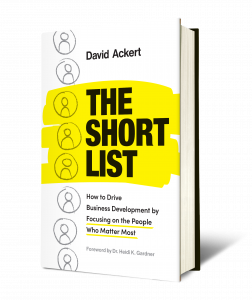Converting Business Development Plans into Pipelines
Many firms encourage their business developers to create business development plans. And, while not everyone participates in that process, those who have a concrete roadmap they can follow – and marketers who can help them take an action-oriented approach – are better positioned to convert those plans to actual business pipelines.
What questions should your business developers consider in order to convert their plans into pipelines?
1) Who is on your short list?
These are the most important contacts who must be prioritized for the plan to be successful. These will include current clients, prospects, referral sources and business leaders.
2) What is a “reasonable” context for conducting outreach?
To answer this, think through the needs that are most relevant to your clients and the most appropriate outreach given your relationship. This could be as simple as sending an article on a topic that impacts the client’s business or shooting them a text when their favorite team wins a tough game. Both build the relationship and keep you top of mind.
3) How often should you reach out to them?
Factors here include how well you know the client and what reasonable context they have to connect. If they are on your short list, aim for regular (as in at least monthly) correspondence.
4) What memorable experiences and interactions will deepen those relationships?
In this day and age, when we’ve all become comfortable with a simpler life (e.g., less networking events and more couch streaming), identifying what activities your contacts would truly enjoy is key to building meaningful connections. This could be dinner at a hot, new restaurant or a baseball game.
5) How can you convert these interactions into new business opportunities.
This is where the rubber meets the road. If you have defined your targets, conducted regular outreach, deepened the relationship so that you truly understand your contact’s business needs and where you can provide value, then you are in a strong position to ask for business.
When marketers learn how to navigate these conversations using questions like those listed above, they can make a more meaningful difference as revenue enablers at their firms.







